A "Fellow’s Day" preceded the Eleventh EDCTP Forum on 7 November 2023 in Paris, focusing on the EDCTP fellowship programme and the epidemiology and biostatistics fellowship programme run in partnership with the Africa Centres for Disease Control and Prevention (Africa CDC). The meeting united current and former Fellows for face-to-face networking, captivating research presentations, and inspiring discussions on developing scientific leaders in Africa.

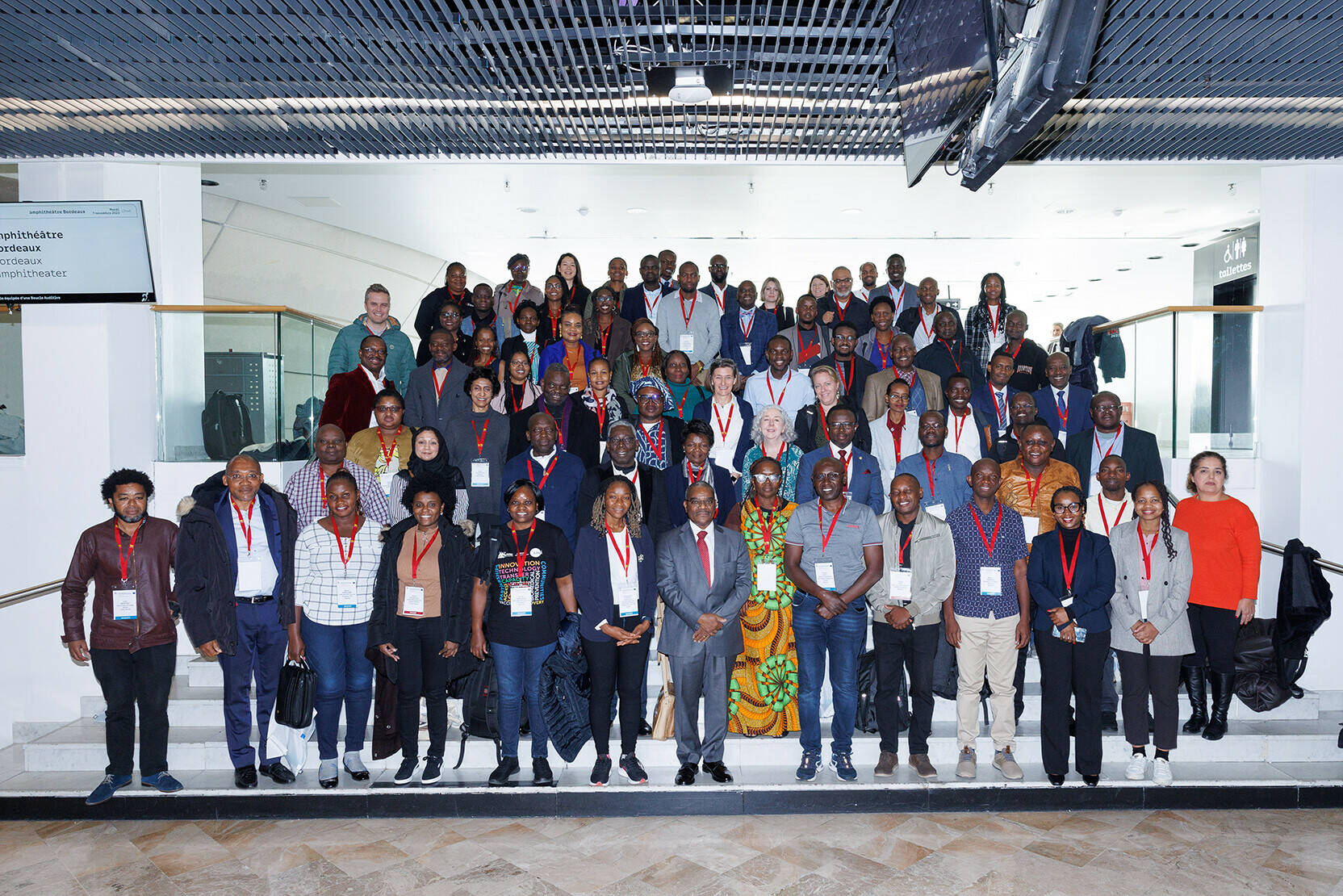
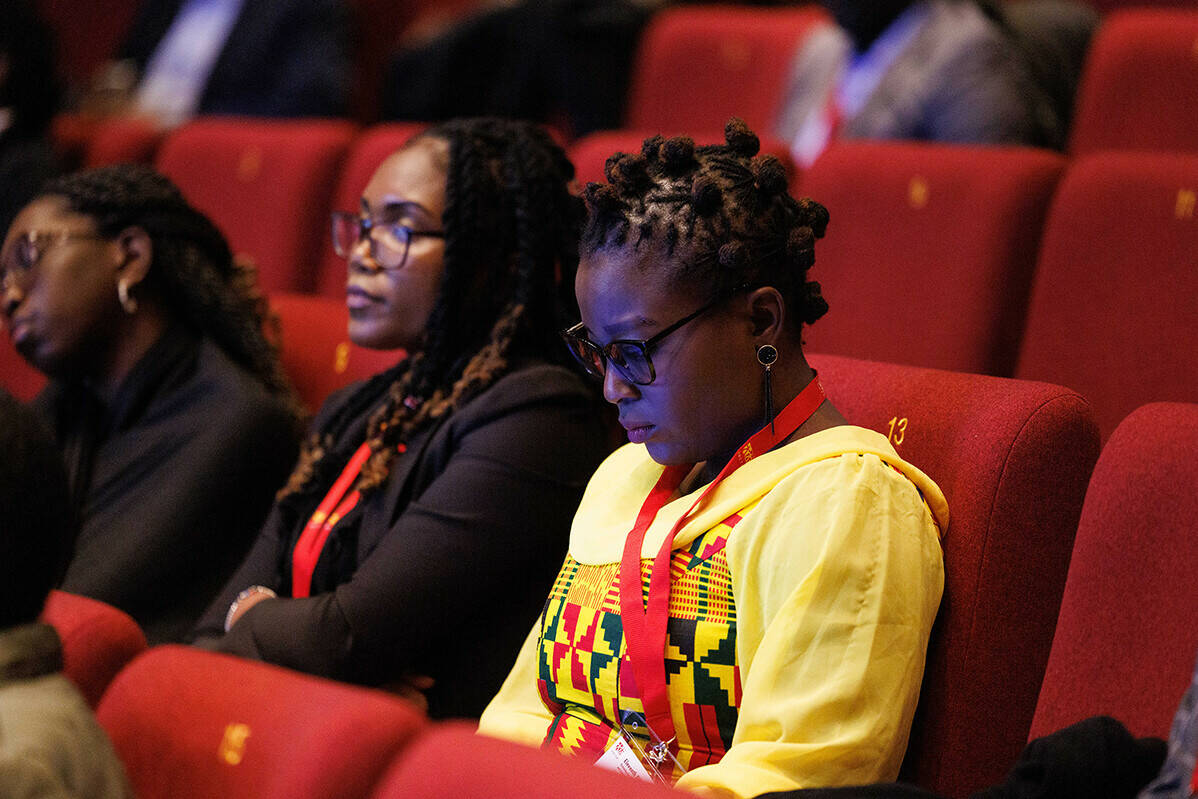
The scheme was designed to address the disconnect between clinical research and national disease control programmes. Too often these two areas operate independently, so clinical research is insufficiently driven by national needs and disease control programmes do not make sufficient use of research evidence. By building the capacity of programme staff, the initiative will ensure that research is better integrated into programmatic activities.
Key issues facing the field, particularly with regard to national public health institutes, as well as lessons learned from the programmes, were discussed by representatives from the ten consortia.
One key question addressed was that of retention – how to ensure that fellows continue to work in the region when they have completed their training.
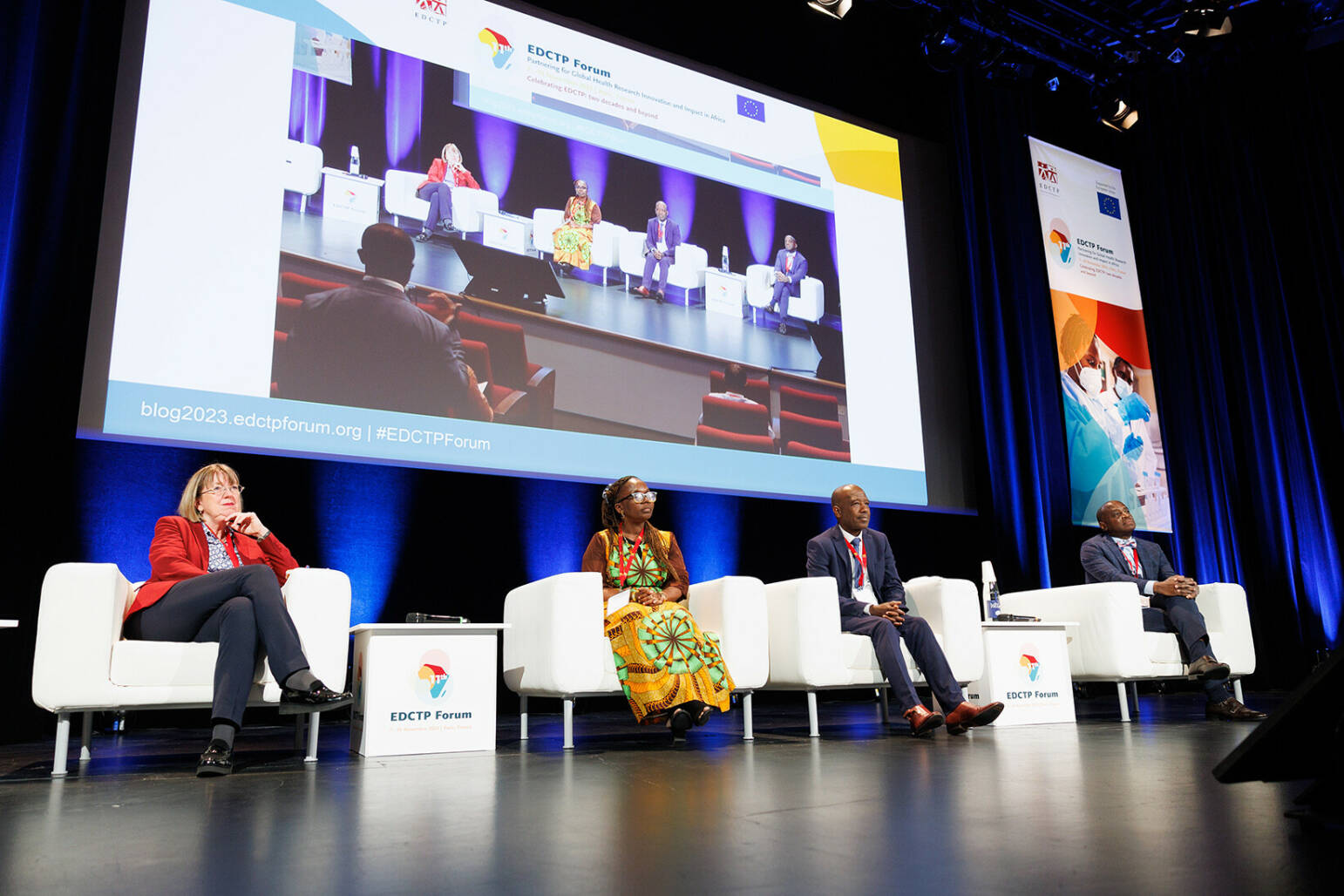
The EDCTP-Africa CDC initiative has supported 10 consortia, which have collectively recruited 151 fellows, 63 of them female and 88 of them male. The programmes are:
CDAE, led by the African Population Health Research Center, Kenya, with partners from Kenya and Sweden, and fellows from Kenya, Malawi, Somalia, Tanzania, Uganda and Zambia
ENTRANT, led by the London School of Hygiene and Tropical Medicine, UK, with partners from and fellows from Botswana, Ethiopia, Kenya, Tanzania, Uganda and Zambia
IDEA, led by Busitema University, Uganda, with partners from Uganda and fellows from Uganda
FETP-CV, led by Universidade Nova de Lisboa, Portugal, with partners from Angola, Cabo Verde, Denmark, Guinea-Bissau and Mozambique
MPHEBDOER, led by the University of Ibadan, Nigeria, with partners from Nigeria and the UK, and fellows from The Gambia, Nigeria and Sierra Leone
MSC EpiBiostat, led by Kinshasa School of Public Health, DRC, with partners from the DRC and fellows from the DRC
PREP-EPID, led by l’Institut Africain de Santé Publique, Burkina Faso, with partners from Guinea Conakry and Burkina Faso, and fellows from Benin, Burkina Faso, Burundi, Central African Republic, Chad, Comoros, Côte d’Ivoire, Guinea, Madagascar, Mali and Togo
SCEPRESSA, led by Jomo Kenyatta University of Agriculture and Technology, Kenya, with partners from Malawi, and fellows from Kenya, Malawi, Namibia, Rwanda, South Sudan, Tanzania and Uganda
TEBWA, led by the University of Abomey-Calavi, Benin, with partners from Benin and the UK, and fellows from Benin, Côte d’Ivoire, Ghana, Guinea, Liberia, Mali, Niger, Nigeria and Togo
TEDOER, led by the University of Ghana, Ghana, with partners from Germany and fellows from the DRC, Ghana, The Gambia, Liberia, Sierra Leone and Zambia.
In 2020, EDCTP and Africa CDC jointly organised an initiative to support consortia providing master’s-level training in epidemiology and biostatistics. Ten grants have been funded, undertaking training at a range of universities in Africa and Europe. The 2023 meeting of the EDCTP-Africa CDC Master’s Fellows in Epidemiology and Biostatistics provided the opportunity to review progress to date and to identify lessons learned in order to inform future activities.
The EDCTP Alumni Network platform provides information on current and former EDCTP fellows and their research, to support networking and development of collaborations.
The revamped virtual platform has been designed to be more intuitive to users and provides greater scope for updating of information by fellows, for example, they can add information on new grants received or articles published. It is now also easier to identify fellows based on geographic or disease area criteria.
In addition, linkages have been created with the Clinical Trials Community (CTC Africa) Platform, which brings together information on clinical trial sites in the region. Information provided on the EDCTP Alumni Network platform can be automatically integrated to the CTC Africa platform, to avoid the need for duplicate data entry.
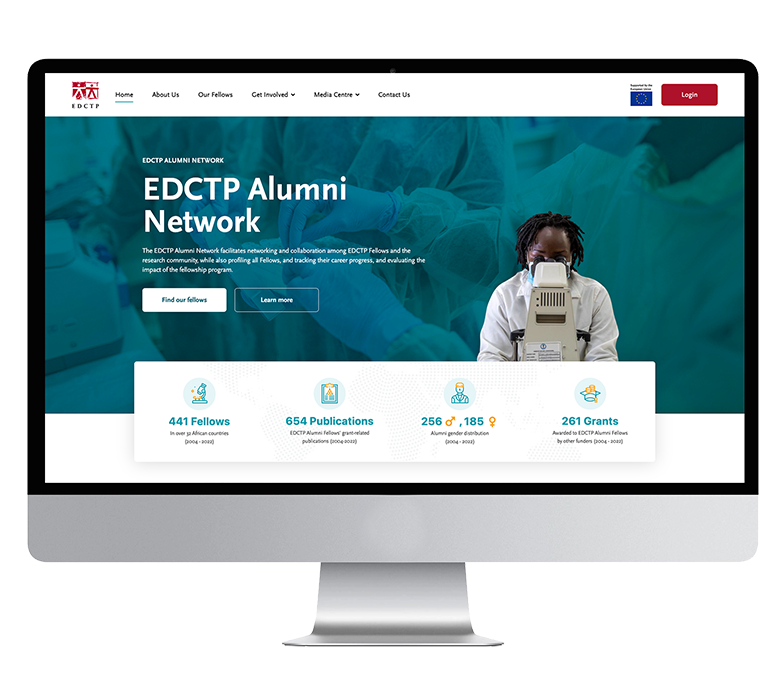
Selection of fellows has been important, with programmes often working closely with local ministries of health. Fellows typically need the support of their employers in order to participate in a programme, and in some cases have to make an undertaking to continue working for their existing employer for a set period after they graduate.
A key theme from discussions was the challenges experienced in recruiting female fellows and the under-representation of women in the scientific workforce in Africa. The consortia made special efforts to ensure good representation of women, for example, by explicitly encouraging applications from women in advertisements and by including gender-related considerations in formal programme governance documents and policies.
Several programmes have recruited from multiple countries and have been mindful of the need to ensure diverse representation on their courses. One of the biggest challenges related to language barriers, particularly for English-language programmes recruiting students whose first language is not English.
Several programmes were developed in partnership with ministries of health and/or national public health institutes. In some cases, existing field epidemiology training programmes were integrated within the programme. Participation in the programmes has been dependent on approvals from host institutions, again ensuring that programme activities reflect programmatic needs in countries.
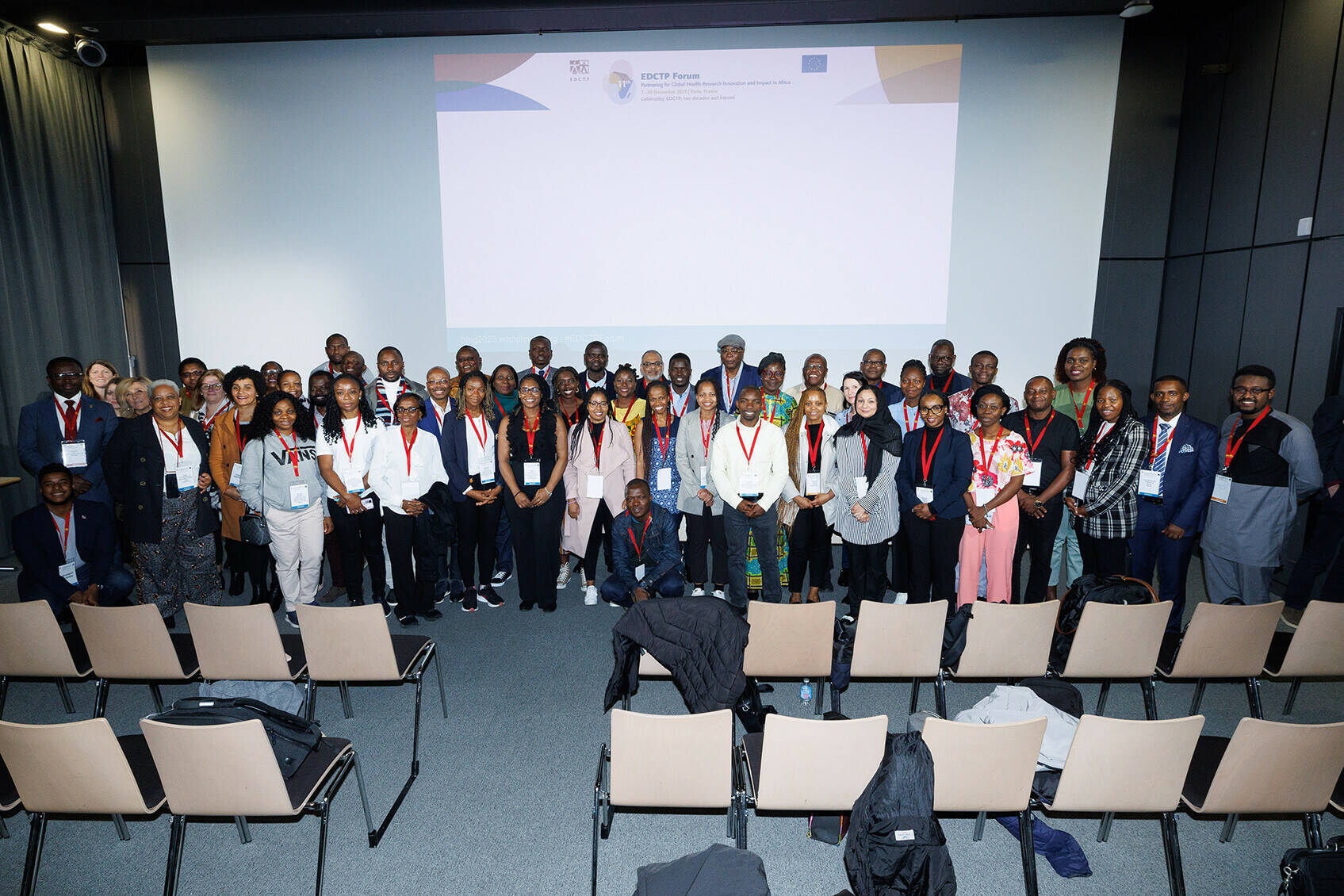
A recurring theme of discussions was the need to consider gender-related barriers, given the under-representation of women in the scientific workforce. It was suggested that consultation with women was needed to identify the factors that discourage or encourage them to pursue careers in research.
The importance of attracting young people into scientific careers was highlighted. It was suggested that the possibility of research should be introduced into education as early as possible, and currently often comes too late in most medical curricula.
Lack of domestic funding for research was raised as an obstacle to capacity-building. Lack of funding at particular stages of a research career can make it difficult for early-career researchers to continue in research.
It was suggested that bodies, such as Africa CDC and the African Union, could advocate for increased investment by countries in health and in health research. The Abuja Declaration could be leveraged, stressing governments’ accountability for honouring the investment pledges made.
The importance of mentoring was widely emphasised during the meeting. While there is considerable enthusiasm for mentoring, there was felt to be limited mentoring capacity within Africa. Furthermore, those with an interest in mentoring often felt they lacked the skills to be effective mentors. It was suggested that mentoring was a skill that could be taught and was not solely dependent on innate abilities.
With limited mentoring capacity available, it can be difficult for early-career researchers to find a suitable mentor. An effective mentor–mentee relationship depends on trust and interpersonal chemistry, so it can be hard for young researchers to have sufficient contacts to find someone suitable.
It was suggested that mentoring needed to be seen as a long-term priority, rather than as something addressed just within individual projects. A mentoring platform could be developed to support the development of mentors’ mentoring skills, to increase the number of mentors available, to ensure mentors are equipped to mentor effectively, and to catalyse the creation of new mentor–mentee relationships. It was noted that mentees could over time become mentors, learning from their mentoring experience, and thereby increase the pool of mentors.
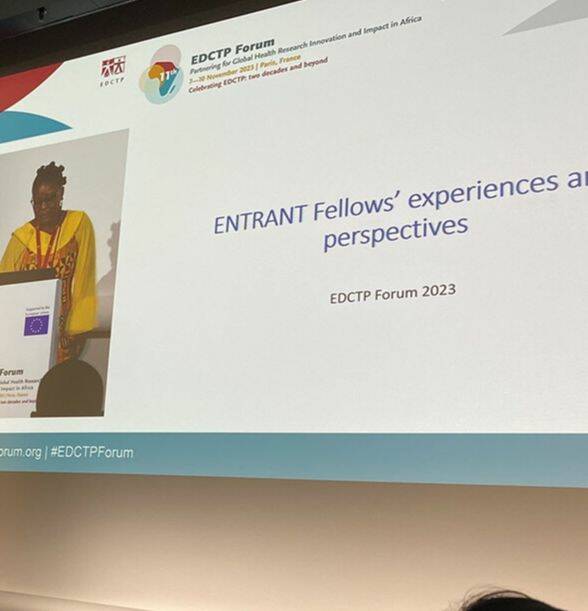
The meeting of the EDCTP Alumni Network provided an opportunity to reflect on EDCTP’s fellowship programme and the role of such programmes has played in capacity-building for clinical research in sub-Saharan Africa over the past 20 years. Presentations also covered new developments, including the introduction of a redeveloped EDCTP Alumni Platform and the new African Clinical Research Fellows Funders Group, while wide-ranging discussions touched up key issues including the importance of mentoring, gender barriers, and attracting young people into clinical research careers and collaboration with new partners to African research ecosystem such as Industry.
scroll down
A "Fellow’s Day" preceded the Eleventh EDCTP Forum on 7 November 2023 in Paris, focusing on the EDCTP fellowship programme and the epidemiology and biostatistics fellowship programme run in partnership with the Africa Centres for Disease Control and Prevention (Africa CDC). The meeting united current and former Fellows for face-to-face networking, captivating research presentations, and inspiring discussions on developing scientific leaders in Africa.
scroll down
